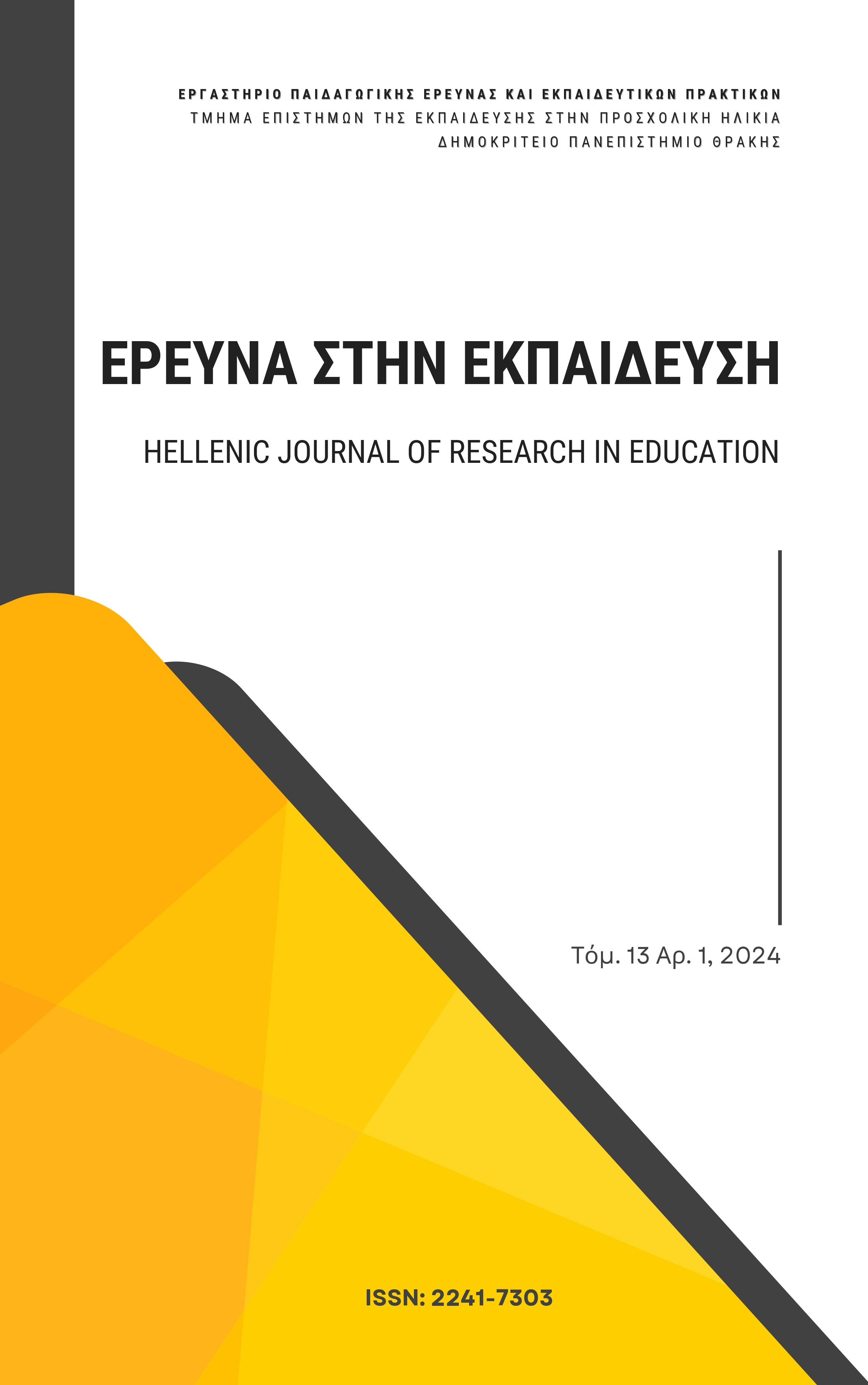"Transformative Learning through Aesthetic Experience": An attempt to apply the method to primary school students to prevent addictive behaviors

Abstract
Contact with all forms of art can be an effective tool in the effort to enhance personal development and the formation of healthy values and attitudes for life. The aim of the present study was to implement and evaluate the effectiveness of an addictive behavior prevention program in primary school, which used the method of "Transformative Learning through Aesthetic Experience" as a tool to enhance students' mental resilience and life skills. 109 students attending the last two grades of primary school in Patras schools participated in the study. A questionnaire on the perceived effectiveness of the program was administered to the students who participated in the implementation of the program. The effectiveness of the program is high on factors related to social skills, the role of art in the psychosocial support of students, information on addictive behaviors and prevention, as well as new information and knowledge gained by the students. The findings of the research highlight the need for the design of a specific educational policy related to prevention, through the implementation of innovative program using tools such as the "Transformative Learning through Aesthetic Experience" method, thus recognizing the important role played by the school environment as a protective factor in preventing the development of addictive behaviors.
Article Details
- How to Cite
-
Pappa, E. (2024). "Transformative Learning through Aesthetic Experience": An attempt to apply the method to primary school students to prevent addictive behaviors. Hellenic Journal of Research in Education, 13(1), 223–234. https://doi.org/10.12681/hjre.38405
- Issue
- Vol. 13 No. 1 (2024)
- Section
- Articles

This work is licensed under a Creative Commons Attribution-NonCommercial-ShareAlike 4.0 International License.
Authors who publish with this journal agree to the following terms:
- Authors retain copyright and grant the journal right of first publication with the work simultaneously licensed under a CC-BY-NC-SA that allows others to share the work with an acknowledgement of the work's authorship and initial publication in this journal.
- Authors are able to enter into separate, additional contractual arrangements for the non-exclusive distribution of the journal's published version of the work (e.g. post it to an institutional repository or publish it in a book), with an acknowledgement of its initial publication in this journal.
- Authors are permitted and encouraged to post their work online (preferably in institutional repositories or on their website) prior to and during the submission process, as it can lead to productive exchanges, as well as earlier and greater citation of published work (See The Effect of Open Access).


